- Skip to main content
- Keyboard shortcuts for audio player
- Your Health
- Treatments & Tests
- Health Inc.
- Public Health

Shots - Health News
A new kind of drug for schizophrenia promises fewer side effects.
Sydney Lupkin
For the first time in decades, the FDA has approved a new type of schizophrenia drug

The Food and Drug Administration approved Cobenfy, a twice-a-day medication that is a new kind of treatment for schizophrenia in adults. Steve Belkowitz/Bristol Myers Squibb hide caption
For the first time in decades, the Food and Drug Administration has approved a new type of drug for schizophrenia.
The twice-a-day pill to be marketed by Bristol Myers Squibb will be called Cobenfy , though it had been referred to as KarXT during development. Its main advantage is that it appears to have fewer side effects than current medicines.

It keeps people with schizophrenia in school and on the job. Why won't insurance pay?
That difference has captured the attention of patients like Tiffany, a librarian in Oklahoma. She asked us to use only her first name because of the stigma associated with schizophrenia.
When she was first put on an antipsychotic drug, she says it made her feel like a zombie. Watching a video of her birthday party that year, she didn’t recognize herself.
“I was opening presents — everyone was happy. And I'm just sitting there like, there's nothing going on. Like, I'm staring at a blank wall,” she says. “And so I lied and I told everyone I was better.”
So she stopped taking the drug and basically white-knuckled it for years until she experienced another psychotic episode.
Then, she played what she calls the “meds game,” trying different pills until one worked for her. But some of the side effects were brutal. Common antipsychotic drugs can cause weight gain and increase the risk for diabetes.
One gave Tiffany a movement disorder.
“So I was pacing in my office for eight hours a day, and it is exactly 3 1/2 steps, turn, 3 1/2 steps, turn,” she says. “It was a nightmare.”
Decades of dopamine-focused drugs
Since the first antipsychotic drug was introduced in the 1950s, the subsequent medications to treat psychosis act on the same chemical that helps the brain communicate with the rest of the body: dopamine.
“The dopamine hypothesis proposed that schizophrenia is associated with excessive dopamine neurotransmission — so too much dopamine activity,” says Dr. Ann Shinn , a psychiatrist who directs clinical research on schizophrenia and bipolar disorder at McLean Hospital near Boston.
Dopamine is the neurotransmitter usually associated with reward and learning, but it actually has a lot of functions. It also plays a role in controlling movement, for example — that’s why that one drug made Tiffany pace.
The new drug targets different brain receptors
Cobenfy is the first new medicine for psychosis that does not act on dopamine.
“I became really interested in schizophrenia and through that work became really interested in the idea of targeting muscarinic receptors because here was a serendipitous clinical finding that suggested potential efficacy, which is really hard to come by in psychiatry,” says the drug’s lead inventor, Andrew Miller .
He’s talking about a 1997 study in Alzheimer’s patients of a drug that was shelved even though it reduced psychosis.
The muscarinic receptors got their name because they respond to muscarine, a chemical in some mushrooms. The problem for developing a drug to activate them in the brain is that they can trigger receptors in the gastrointestinal tract. Patients couldn’t tolerate it.
So Miller and his team decided to add a second medicine — one already used for overactive bladder — to shut down the gastrointestinal receptors. The trick: That medication can’t cross into the brain from the blood.
That means it shuts down the muscarinic receptors in the body but doesn’t stop the first drug from doing its job in the brain.
“Basically Karuna kind of did this brilliant thing of putting it all together in a combination drug,” Shinn says.
She’s talking about Miller’s company, Karuna Therapeutics, which was acquired by pharmaceutical heavyweight Bristol Myers Squib b for $14 billion dollars earlier this year.
How much it will cost?
Bristol Myers Squibb says the drug will be available starting in October at $1,850 a month, which is in line with other schizophrenia treatments. It’s unclear how easy it will be for patients to get insurance coverage for Cobenfy.
“If it's like a lot of the other new medications, insurance is generally going to mandate that people try at least two generic medicines first … before they will pay for it,” says Dr. Jacob Ballon , an associate professor of psychiatry at Stanford University.
Still, he has a lot of patients — and their parents — who are excited about a potential new treatment option, he says. Ballon is working on an ongoing study of how Cobenfy fits in with existing drugs and whether they can be used together.
While the new medicine isn’t for everyone, it could help patients who’ve had trouble with existing treatments.
The FDA based its approval on 5-week double-blind, placebo-controlled studies. That means some patients received Cobenfy and others got a placebo, but neither the patients nor the clinicians knew which was which until the study was over. The short study length has prompted some experts to point out that questions remain about the drug’s long-term safety and efficacy .
Common side effects with Cobenfy include nausea, constipation and rapid heartbeat.
As for Tiffany, she’s interested in trying the drug down the road. Unlike previous drugs which only tackled the so-called positive symptoms of schizophrenia, like hallucinations and delusions, Cobenfy has been shown to decrease the “negative” symptoms, such as apathy and lack of motivation.
“Every time I have an episode, I lose bits of myself and bits of functionality … and that's not fair to my husband, and I hate it,” she says. “So if I could have something that would help me have a little bit more initiative, that would be wonderful.”
She also has some advice for people with schizophrenia who are still searching for the right treatment.
“Just keep trying,” she says. “It's really hard to go on and off medications, but when you find the right one, it makes a huge difference — night and day.”
- schizophrenia
- mental health
- Pharmaceuticals

Transforming the understanding and treatment of mental illnesses.
Información en español
- Science News
- Meetings and Events
- Social Media
- Press Resources
- Email Updates
- Innovation Speaker Series
Science News About Schizophrenia

December 16, 2024 • Research Highlight
An NIMH-funded study identified consistent links between brain connectivity and cognitive function in people with early stage psychosis and people at high risk who later developed psychosis.
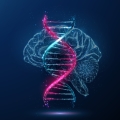
May 23, 2024 • Press Release
An NIMH-funded research consortium has produced the largest and most advanced multidimensional maps of gene regulation networks in the brains of people with and without mental disorders.

March 25, 2024 • Research Highlight
Research funded by NIMH found a link between a low level of social interest among people with psychotic disorders and brain regions in the social motivation system.

September 25, 2023 • Feature Story • 75th Anniversary
The Recovery After an Initial Schizophrenia Episode research initiative, launched by NIMH to test the effectiveness of coordinated specialty care to treat first-episode psychosis, has transformed the mental health landscape in the United States and helped thousands of people with schizophrenia achieve better outcomes.

November 29, 2022 • Research Highlight
In a comprehensive postmortem genetic analysis of the caudate nucleus in the brain, NIMH-supported researchers identified many genes associated with schizophrenia risk, including a gene that regulates the flow of the chemical messenger dopamine.

August 16, 2022 • Research Highlight
Researchers used computational methods to automatically detect abnormalities in spoken language that could be used to predict symptoms of psychotic disorders including schizophrenia.

March 8, 2022 • Press Release
A new study shows the use of a clinical decision support system to prompt the use of shared decision-making tools, such as handouts, may result in positive impacts on long-term cardiovascular health in patients with serious mental illness.

February 9, 2021 • Press Release
A new study conducted by researchers at NIMH suggests that differences in the expression of gene transcripts – readouts copied from DNA that help maintain and build our cells – may hold the key to understanding how mental disorders with shared genetic risk factors result in different patterns of onset, symptoms, course of illness, and treatment responses.

February 2, 2021 • Research Highlight
The Early Psychosis Intervention Network (EPINET), an NIMH initiative aimed at determining how to best provide treatment for individuals experiencing symptoms of early psychosis, is increasing access to resources for researchers, providers, and families through a growing network of research hubs and a new website.

September 15, 2020 • Research Highlight
NIMH has joined with other NIH Institutes in launching an new Accelerating Medicines Partnership focused on advancing the development of better ways to identify and treat those at clinical high risk for psychosis.
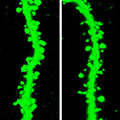
October 24, 2019 • Press Release
Mice with an impaired version of one the few genes definitively linked to schizophrenia showed abnormalities in working memory, mimicking those commonly seen in schizophrenia patients.
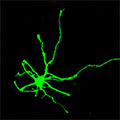
September 23, 2019 • Press Release
Gene expression regulators work together to raise an individual’s risk of developing schizophrenia. Schizophrenia-like gene expression changes modeled in human neurons matched changes found in patients’ brains.

September 20, 2019 • Press Release
NIMH awarded six research grants for studies to develop a learning health care system for the treatment of early psychosis.

September 3, 2019 • Institute Update
Mental health research center directors emerged from a recent meeting with a renewed commitment to help each other achieve their common mission – to transform care of children, adolescents and adults with severe psychiatric disorders.
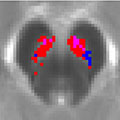
February 20, 2019 • Press Release
Researchers have shown that a type of magnetic resonance imaging — called neuromelanin-sensitive MRI (NM-MRI) — is a potential biomarker for psychosis. NM-MRI signal was found to be a marker of dopamine function in people with schizophrenia and an indicator of the severity of psychotic symptoms in people with this mental illness.
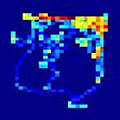
January 17, 2019 • Press Release
A new study in rodents has demonstrated, for the first time, that the brain’s cerebellum plays a role in controlling reward and social preference behavior—findings that shed light on the brain circuits critical to the affective and social dysfunction seen across multiple psychiatric disorders.
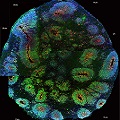
December 20, 2018 • Press Release
PsychENCODE researchers are discovering the biological mechanisms by which mental illness risk genes work in the human brain.

December 11, 2018 • Science Update
Two recent studies add to the evidence that team-based early intervention services are feasible in real-world health care settings and result in improved outcomes for patients.
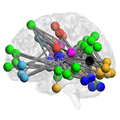
December 4, 2018 • Science Update
NIMH-funded scientists have discovered a pattern in the way a brain circuit works that may help predict the onset of psychosis. High levels of chatter, or “hyperconnectivity,” in a circuit involving the cerebellum, thalamus, and cortex emerged as a potential “neural signature” in a functional magnetic resonance imaging (fMRI) study.
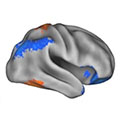
July 24, 2018 • Science Update
High levels of maternal inflammation during pregnancy have been linked to effects in children, including reduced brain circuit communications and altered long-distance brain wiring at birth, poorer cognitive function at one year – and to reduced impulse control and working memory at two years.
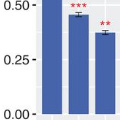
March 1, 2018 • Science Update
Depression, schizophrenia and autism spectrum disorder share some of the same patterns of suspect gene expression – molecular signatures.
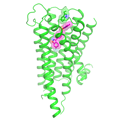
January 29, 2018 • Press Release
Scientists have deciphered the molecular structure of a widely-prescribed antipsychotic docked in its key human brain receptor. The discovery may hold clues to designing better treatments for schizophrenia, bipolar disorder and other mental illnesses.
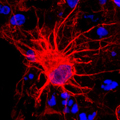
August 18, 2017 • Press Release
Star-shaped support brain cells, astrocytes, growing in 3-D “organoids” in a dish develop similarly as those in human brain tissue.
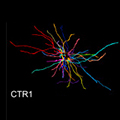
August 7, 2017 • Science Update
Support cells generated from patients with childhood onset schizophrenia stunted neural circuit development when grafted into developing mouse brains.
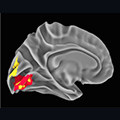
July 24, 2017 • Science Update
Researchers have produced the first direct evidence that parts of our brains implicated in mental disorders may be shaped by a “residual echo” from our ancient past. The more a person’s genome carries genetic vestiges of Neanderthals, the more certain parts of his or her brain and skull resemble those of humans’ evolutionary cousins that went extinct 40,000 years ago.
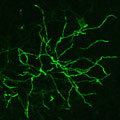
May 3, 2017 • Press Release
Long overlooked as a mere “relay,” an egg-like structure in the middle of the brain also turns out to play a pivotal role in tuning-up thinking circuity. A trio of studies in mice are revealing that the thalamus sustains the ability to distinguish categories and hold thoughts in mind. It might even become a target for interventions for psychiatric disorders marked by working memory problems, such as schizophrenia.
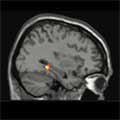
April 19, 2017 • Science Update
Brain scans reveal that fluctuations in estrogen can trigger atypical functioning in a key brain memory circuit in women with a common version of a gene. Since working memory function is often disturbed in mental disorders, such gene-hormone interactions are suspect mechanisms that may confer risk.

April 6, 2017 • Press Release
A new study shows that young people with first episode psychosis have a much higher death rate than previously thought. Researchers looked at people aged 16-30 and found that the group died at a rate at least 24 times greater than the same age group in the general population.

September 27, 2016 • Science Update
Scientists have pinpointed several schizophrenia-related gene variants that alter expression of other genes in illness-implicated circuitry of the human brain.
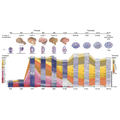
August 12, 2016 • Science Update
Schizophrenia, autism risk gene trajectories point to shared causes
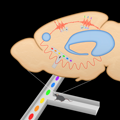
March 11, 2016 • Press Release
Scientists have discovered secrets of how the brain recalls experiences of being in a particular location in making informed choices.
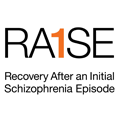
February 1, 2016 • Press Release
Coordinated Specialty Care for First Episode Psychosis is Cost Effective
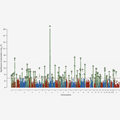
January 27, 2016 • Press Release
Versions of a gene linked to schizophrenia may trigger runaway pruning of the teenage brain’s still-maturing communications infrastructure.The gene switched on more in people with the suspect versions, who faced a higher risk of developing the disorder.
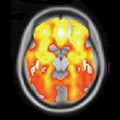
December 8, 2015 • Press Release
Three biomarker-based categories, called “biotypes,” outperformed traditional diagnoses, such as schizophrenia and bipolar disorder with psychosis, in sorting psychosis cases into distinct subgroups on the basis of brain biology

November 4, 2015 • Science Update
Recent articles in JAMA Psychiatry report and comment on the premature mortality seen among adults with schizophrenia; NIMH research is underway to reduce health risk factors in people with serious mental illness.
October 20, 2015 • Press Release
New research shows that a team-based, coordinated specialty care treatment plan produces better outcomes than typical community care for people with first episode psychosis. Investigators also found that treatment is most effective for people who receive care soon after psychotic symptoms begin.

April 17, 2015 • Live Chat
NIMH Google+ Hangout on First-Episode Psychosis
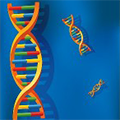
January 29, 2015 • Science Update
Risk genes for different mental disorders work through same pathways
December 12, 2014 • Press Release
Many patients with first-episode psychosis receive medications that do not meet guidelines. A study finds that almost 40 % of people with first-episode psychosis in community mental health clinics across the country might benefit from medication treatment changes.
October 8, 2014 • Press Release
Many patients with psychosis develop health risks associated with premature death early in the course of their mental illness, researchers have found.

August 18, 2014 • Press Release
Researchers have shown in patients’ cells how a rare mutation in a suspect gene disrupts the expression of dozens of other genes underlying neural connections.
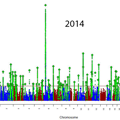
July 22, 2014 • Press Release
The largest genomic dragnet of any psychiatric disorder to date has unmasked 108 chromosomal sites harboring inherited variations in the genetic code linked to schizophrenia, 83 of which had not been previously reported.

May 23, 2014 • Science Update
Treatment adherence is a problem among people with schizophrenia, who may not take medications because they don’t perceive its need or benefit, don’t like the side effects, or forget. To combat this issue, long-acting injectable medications are administered every 2-4 weeks. But are the new forms of these drugs better than the old ones?

April 23, 2014 • Science Update
NIMH’s Dr. Robert Heinssen Receives Special Presidential Commendation from APA
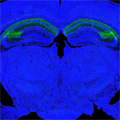
March 13, 2014 • Science Update
The hippocampus houses learning and memory—specifically the storage of knowledge of who, what, where, and when. Using a special transgenic mouse, researchers have now pinpointed a hippocampal region called CA2 that is important for social memory, the ability of animal to recognize another of the same species. Understanding this region could be useful in understanding and treating disorders characterized by altered social behaviors such as schizophrenia, bipolar disorder, and autism.
Potential schizophrenia treatment, discovered at Vanderbilt and being developed by Neumora Therapeutics, entering Phase 1 clinical trial

Media Inquiries
- 615-322-6397 Email
Latest Stories
- Important commuting, transportation and parking reminders
- Vanderbilt Peabody College announces scholarship for Nashville area educators
- Tony Stewart, Gertrude Conaway Vanderbilt Chair in the Humanities, emeritus, has died
Share this Story
Dec 4, 2023, 12:49 PM
A potential schizophrenia treatment discovered through the Warren Center for Neuroscience Drug Discovery has been cleared by the U.S. Food and Drug Administration for use in phase 1 clinical trials—the third WCNDD therapeutic to reach that benchmark.

“Vanderbilt is proud that a discovery by our researchers at the Warren Center is now a significant step closer to helping improve the lives of people with schizophrenia,” Chancellor Daniel Diermeier said. “Our work with Neumora is the very definition of translational research and the work we aim to do every day, which is applying innovation and discovery to help address the world’s most complex challenges.”
The clinical trial has been initiated by Neumora Therapeutics Inc. , a clinical-stage biopharmaceutical company founded to confront the global brain disease crisis by taking a fundamentally different approach to the way treatments are developed. Vanderbilt and Neumora signed an exclusive, worldwide license and a research collaboration agreement for two novel series of M4 receptor modulator compounds, including NMRA-266, in February 2022.

Vanderbilt’s agreement with Neumora was centered around the M 4 muscarinic receptor, which NMRA-266 targets through positive allosteric modulation. In preclinical studies conducted by Conn and Lindsley, NMRA-266 was found to be highly selective to the M 4 receptor, the area of the brain that regulates neurotransmission of dopamine. Overactive transmission of dopamine is connected to the positive, negative and cognitive symptoms of schizophrenia.
“The M 4 PAM story has been a Homer-style Odyssey to get to this point and represents almost 20 years of research funded by National Institutes of Health, the William K. Warren Foundation and pharmaceutical companies,” said Lindsley, also a University Professor of pharmacology, biochemistry and chemistry who holds the William K. Warren, Jr. Chair in Medicine. “This mechanism and NMRA-266 represent a potential game-changer for schizophrenic patients and their families. Moreover, this success is a testament to the virtue of academic drug discovery and Vanderbilt’s commitment to supporting the WCNDD, a clinical-stage biotech enterprise within the university.”
For the WCNDD to have such regular production of clinical assets when up against diverse neuroscience pipeline is unprecedented among academic drug discovery centers, according to Lindsley.
“NMRA-266 entering phase 1 trials highlights the complementary relationship between university researchers and industry partners,” said Vice Provost for Research and Innovation Padma Raghavan. “By pairing our faculty’s ingenuity with the private sector’s commercialization know-how, we are able to bring life-changing discoveries to patients in need faster.”
Schizophrenia spectrum disorders affect 3.7 million U.S. adults, a figure up to three times higher than previously understood, according to a recent study . This fundamentally different mechanism that NMRA-266 acts through is very selective for brain circuits involved in schizophrenia, which means in is unlikely to have the adverse effects of current dopamine antagonists—resulting in an improved standard of care for people with schizophrenia.
“The initiation of this phase 1 study is an important step in the development of NMRA-266. In pre-clinical studies NMRA-266 demonstrated a favorable pharmacologic profile that includes high potency and selectivity for the M 4 receptor subtype, meriting its advancement into the clinic,” Dr. Robert Lenz, executive vice president and head of research and development at Neumora, said in a release . “With its pre-clinical profile and clinical validation of the M 4 muscarinic receptor class in treating schizophrenia, we believe that NMRA-266 has strong potential as a treatment for neuropsychiatric disorders.”
Human clinical trials are a significant advancement in a five-step drug development process . Drug discovery research begins in the lab and is followed by preclinical research to answer basic questions about safety. Then there is clinical research to ensure that the treatment is safe and effective. The FDA then reviews all submitted data. If approved, the therapeutic will be made available for use by the public and be monitored for safety by the FDA for as long as it is available.
The Vanderbilt-Neumora collaboration was facilitated by the Center for Technology Transfer and Commercialization . Vanderbilt researchers who contributed to research around NMRA-266 and the power of academic drug discovery include Darren W. Engers , Aaron Bender , Olivier Boutaud , Thomas Bridges , Julie Engers , Alison Gregro , Carrie Jones , Colleen Niswender , Jerri Rook and Kayla Temple .
Explore Story Topics
- Aaron Bender
- Allison Gregro
- Basic Sciences
- biomedical research
- Carrie Jones
- clinical trial
- Colleen Niswender
- Craig Lindsley
- Darren Engers
- Discovery Vanderbilt
- featured myvu
- featured research
- Food and Drug Administration
- Jeffrey Conn
- Julie Engers
- Kayla Temple
- MyVU latest headlines
- neuroscience
- Olivier Boutaud
- pharmacology
- schizophrenia
- School of Medicine Basic Sciences
- Thomas Bridges
- Warren Center for Neuroscience Drug Discovery
Thank you for visiting nature.com. You are using a browser version with limited support for CSS. To obtain the best experience, we recommend you use a more up to date browser (or turn off compatibility mode in Internet Explorer). In the meantime, to ensure continued support, we are displaying the site without styles and JavaScript.
- View all journals
Schizophrenia articles from across Nature Portfolio
Schizophrenia is a severe and debilitating psychiatric disorder that involves psychotic symptoms such as hallucinations and delusions, accompanied with regressive behaviour.
Latest Research and Reviews
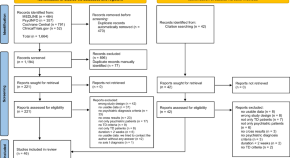
Efficacy and acceptability of pharmacological interventions for tardive dyskinesia in people with schizophrenia or mood disorders: a systematic review and network meta-analysis
- Marco Solmi
- Michele Fornaro
- Christoph U. Correll
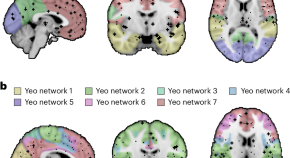
Heterogeneous patterns of brain atrophy in schizophrenia localize to a common brain network
Utilizing heterogeneous results from the published studies on brain atrophy in schizophrenia, the authors identify a common brain network for schizophrenia that is stable with disease progression and across different clusters of schizophrenia symptoms.
- Ahmed T. Makhlouf
- William Drew
- Shan H. Siddiqi
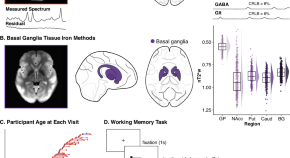
Adolescent maturation of dorsolateral prefrontal cortex glutamate:GABA and cognitive function is supported by dopamine-related neurobiology
- Ashley C. Parr
- Maria I. Perica
- Beatriz Luna
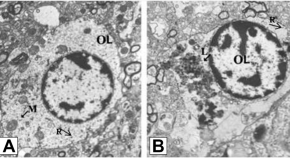
Glial cell deficits are a key feature of schizophrenia: implications for neuronal circuit maintenance and histological differentiation from classical neurodegeneration
- Hans-Gert Bernstein
- Madeleine Nussbaumer
- Johann Steiner
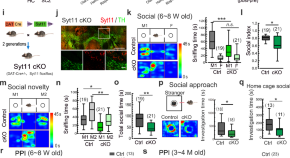
Synaptotagmin-11 deficiency mediates schizophrenia-like behaviors in mice via dopamine over-transmission
Schizophrenia is a severe psychiatric disorder and the pathogenesis remains unclear. Here, the authors show a potential role for synaptotagmin-11 in schizophrenia-related behavior through dopamine over-transmission.
- Changhe Wang
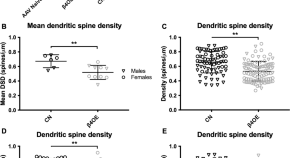
Impacts of CACNB4 overexpression on dendritic spine density in both sexes and relevance to schizophrenia
- Emily M. Parker
- Nathan L. Kindja
- Robert A. Sweet
News and Comment
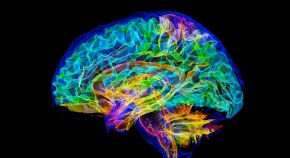
New schizophrenia drug could treat Alzheimer’s disease
Half a dozen drugs are in trials for conditions of the brain, but success is not guaranteed.
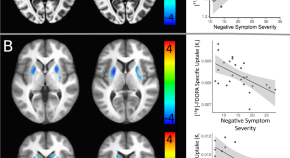
The dopaminergic basis of negative symptoms in schizophrenia: an addendum
- Ana Weidenauer
- Irena Dajic
- Matthäus Willeit
Pre-stimulus neural activity and visual perception in schizophrenia
- Troby Ka-Yan Lui
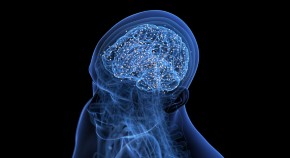
Revolutionary drug for schizophrenia wins US approval
The medication is the first in decades to have a different mode of action from those of current drugs, achieving better symptom relief with fewer side effects.
- Elie Dolgin
Messiah or pariah? Psychosis, science, and finding meaning in lived experience
Diagnosed with adult-onset schizophrenia shortly after his 24th birthday, the author transitioned from a perceived state of spiritual awakening to grappling with one of the most stigmatized illnesses. Initially, he internalized societal stereotypes, envisioning a future as a marginalized individual. However, with support from family and providers, he re-engaged with school and work, fostering an expectation of normalcy despite early struggles. The author discusses his psychotic episodes, marked by rapture, absurdity, and terror, in light of current neurobiological literature and mechanistic hypotheses such as salience network dysfunction and impaired corollary discharge. Over time, he sought to reconcile these intense memories with scientific understanding to find meaning in his lived experience. As co-chair of the Accelerating Medicines Partnership® Schizophrenia (AMP® SCZ), he advocates for an integrative approach combining scientific inquiry and lived experience. This perspective not only fosters a more accurate comprehension of psychosis but may also enhance research and care.
- Carlos A. Larrauri

Put people at the heart of schizophrenia research
Scientists, health-care professionals, carers and individuals affected by the condition must work more closely with one another to improve people’s lives.
- Constanza Morén
Quick links
- Explore articles by subject
- Guide to authors
- Editorial policies
Media Center
- Events & Webinars
- Healthy Minds TV
- Email Signup
- Get Involved
- Anxiety Disorders
- Attention-Deficit Hyperactivity Disorder (ADHD)
- Autism Spectrum Disorder (ASD)
- Bipolar Disorder
- Borderline Personality Disorder (BPD)
- Eating Disorders
- Mental Illness (General)
- Obsessive-Compulsive Disorder (OCD)
- Inaccessible
- Post-Traumatic Stress Disorder (PTSD)
Schizophrenia
- Suicide Prevention
- Other Brain-Related Illnesses
- Basic Research
- New Technologies
- Early Intervention/ Diagnostic Tools
- Next Generation Therapies
- Donate Today
- Make a Memorial/Tribute Gift
- Create an Event/Memorial Page
- Find an Event/Memorial Page
- Make a Stock/Securities Gift/IRA Charitable Rollover Gift
- Donate Cryptocurrency
- Other Giving Opportunities
- Monthly Giving
- Planned Giving
- Research Partners
- Donor Advised Funds
- Workplace Giving
- Team Up for Research!
- Sponsorship Opportunities
$178M Awarded to Schizophrenia Research since 1987
The Latest Research Discoveries
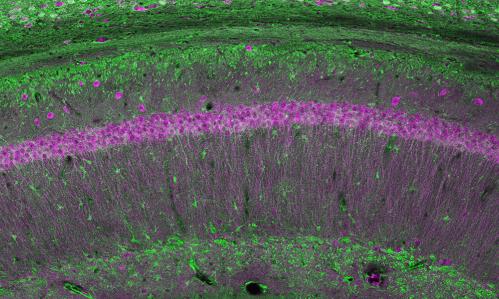
Posted: September 12, 2024
Variations in Schizophrenia-Linked Gene Are Linked With Pathology in Prefrontal Cortex, Impairing Cognition

Posted: February 01, 2024
In Young Psychosis Patients, Study Reveals Changes Over Time in Brain Molecules Called Metabolites

Posted: January 18, 2024
New, Potential First-in-Class Schizophrenia Medicine Reduced Positive and Negative Symptoms in Phase 3 Trial
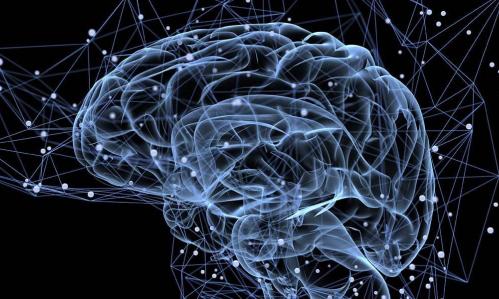
Posted: January 11, 2024
In Trial, Magnetic Seizure Therapy (MST) Was Just as Effective as Electroconvulsive Therapy (ECT) in Treating Severe Depression, and Likely Safer

Posted: November 28, 2023
A Connectivity Signature Predicting Response to Antipsychotic Therapy is Identified in First-Episode Psychosis Patients

Posted: November 09, 2023
Anti-Inflammatory Medicine Reduced Positive Symptom Severity in Chronic Schizophrenia Patients with Elevated Inflammatory Markers
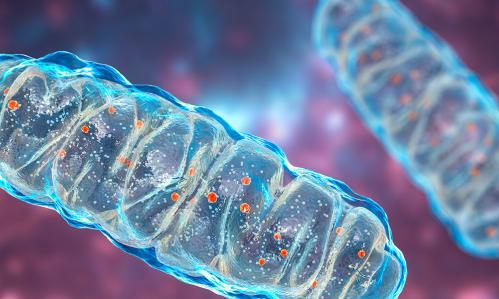
Posted: October 16, 2023
A Problem With Energy-Producing Mitochondria May Increase Risk for Schizophrenia

Posted: September 21, 2023
Combined Psychosocial Treatment Helped Schizophrenia Patients with Motivational Negative Symptoms

Posted: September 05, 2023
In Schizophrenia, Reducing the Impact of Medications on One Neurotransmitter System Could Yield Gains in Cognition

Posted: July 24, 2023
Two Forms of Non-Drug Therapy Helped Reduce Impulsive Aggression in Schizophrenia

Posted: May 30, 2023
In Young Men, 15% of Schizophrenia Might Be Prevented If Cannabis Use Disorder Is Not Present, Study Finds

Posted: May 16, 2023
Research Suggests How Working Memory Retains, Manipulates, and Deletes Specific Items

Posted: March 29, 2023
Study Suggests Why Cannabidiol (CBD) Can Help To Reduce Epileptic Seizures in Severe Cases

Posted: February 23, 2023
Study of How Schizophrenia Symptoms Affect One Another Finds Anhedonia and Low Motivation to Be Plausible Targets of Focused Treatments
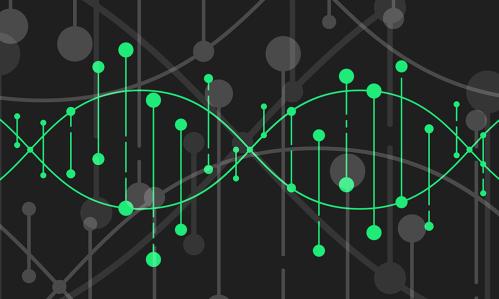
Posted: January 19, 2023
Genetic Data Suggest How Immune Abnormalities May Help Cause Psychiatric Illness, Across Multiple Disorders

Posted: December 14, 2022
Sensory and Motor-System Abnormalities May Help Identify High-Risk Individuals Who Will Develop Psychosis
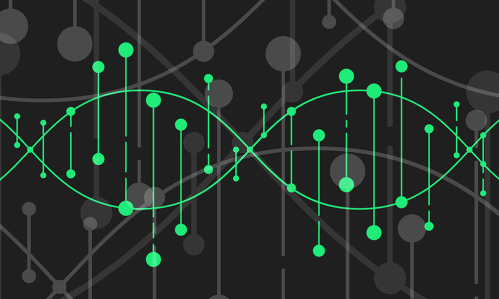
Study Reveals How Gene Regulation Helps Determine Brain Development, Shedding Light on Neurodevelopmental Disorders
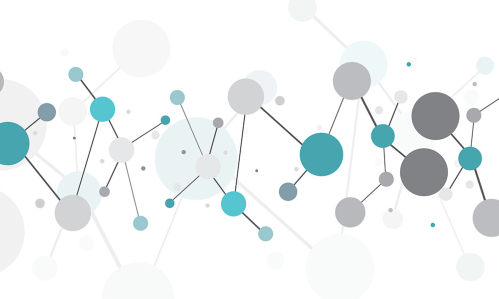
Posted: December 13, 2022
In Hippocampus, Protein's Malfunction Is Potential Link to Memory and Other Impairments Seen in Schizophrenia

Comprehensive Analysis Suggests Metacognitive Training Can Be Effective in Schizophrenia and Psychotic Disorders

Maternal Sleep Apnea in Pregnancy Is Linked in Animal Model With Autism-like Behavioral Impacts in Offspring
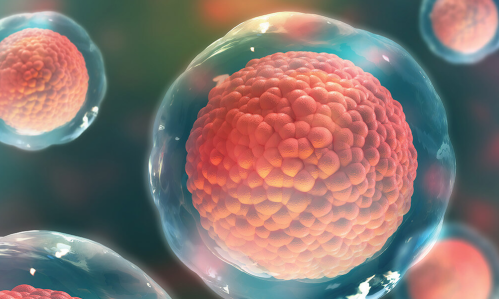
Stem Cell Technology Helps Identify a Potential Causal Mechanism in Schizophrenia That Could Be Targeted

Difficulty Updating Prior Knowledge With New Perceptions Is Linked by Researchers With Psychosis Symptoms

Precise Imaging Reveals How a Key Receptor's Signaling Is Modulated—A Spur to Improving Psychiatric and Other Drugs
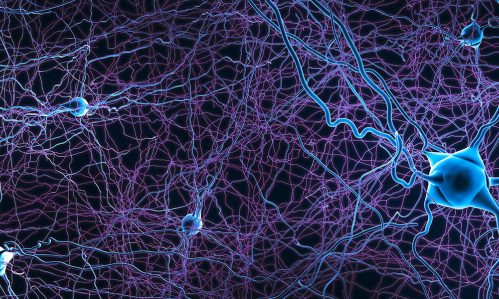
Posted: December 12, 2022
Lab-Grown Human Neurons Transplanted into the Rat Brain Grew, Connected, and Promise to Shed Light on Psychiatric Illness
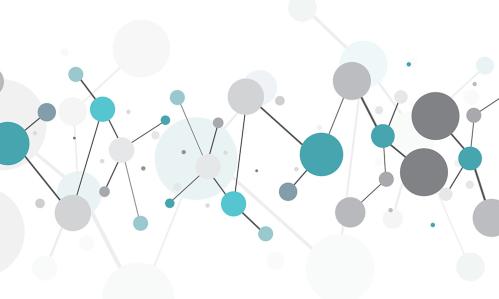
Posted: December 01, 2022
Important New Research on Schizophrenia Genetics Provides Strongest Evidence to Date of Problems at the Brain’s Synapses

Posted: September 30, 2021
Researchers Propose a New Understanding of Dopamine's Role in Learning and Memory

Posted: August 12, 2021
Obesity Is a Risk Factor for Brain-Structure Changes in Schizophrenia and Bipolar Disorder, 2 Studies Show

Posted: July 08, 2021
Negative Symptoms in Schizophrenia Worsened Under Pandemic Conditions, Study Finds
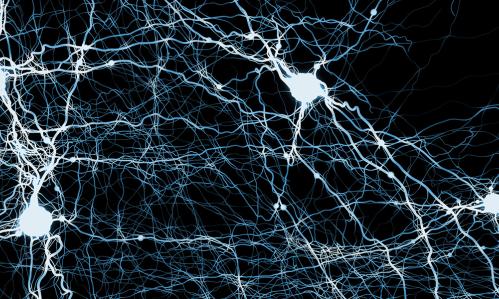
Posted: July 01, 2021
Study Links Schizophrenia Medicines’ Anticholinergic Impact to Risk of Cognitive Impairment
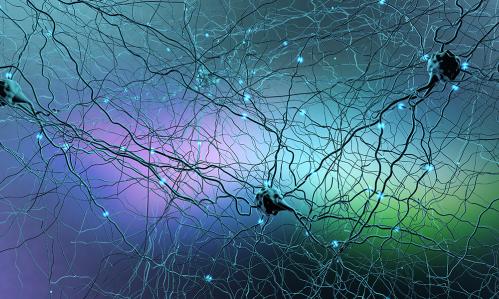
Posted: June 21, 2021
Experiments Reveal How a Circuit 'Resets' When the Brain Learns to Respond to New Conditions

Posted: May 27, 2021
Testing a Computer-Generated Model to Predict High-Risk Youths' Transition to Psychosis

Posted: May 05, 2021
Using Brainwave Patterns to Predict and Understand Psychiatric Disorders

Posted: March 25, 2021
In Early Schizophrenia, Long-Acting Injectable Antipsychotic Treatment Lengthened Time to First Hospitalization

Posted: March 18, 2021
Hyperactivity in Two Wide-Ranging Neural Networks is Discovered in Schizophrenia Patients
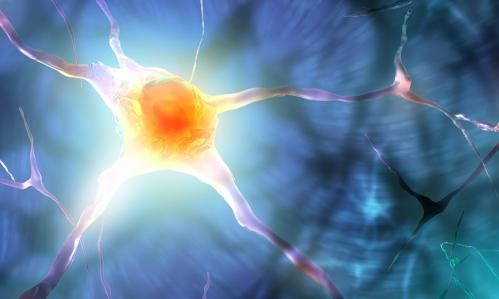
Posted: February 18, 2021
In Schizophrenia, Differences in the Brain’s Energy Pathways Suggest Possible New Treatment Target

Posted: February 04, 2021
People With Schizophrenia Have Increased Risk of Dying From COVID-19, Research Reveals

Posted: January 28, 2021
Combining the Antipsychotic Olanzapine with an Opioid-Receptor Blocker Significantly Limited Weight-Gain Risk in Schizophrenia Patients

Posted: November 12, 2020
Study Reveals Adults With Mental Disorders Are At Significantly Higher Risk of COVID-19 and Have Poorer Outcomes
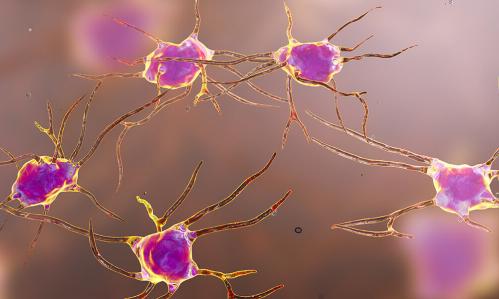
Posted: October 29, 2020
Researchers Discover a Role for Immune Cells Called Microglia in Inhibiting Brain Activity and Regulating Behavior

Posted: October 22, 2020
Drugs Targeting the Glutamate System Warrant Continued Development for Schizophrenia, Study Finds

Posted: October 08, 2020
New Study Demonstrates Non-Invasive tDCS Brain Stimulation Can Enhance Cognitive Control in Schizophrenia Patients

Posted: October 01, 2020
Study Makes Case for Rigorous Re-Testing of Opioid Antagonists to Treat Schizophrenia

Posted: September 17, 2020
Large Genetic Study Expands Links Between DNA Variations and Problematic Drinking
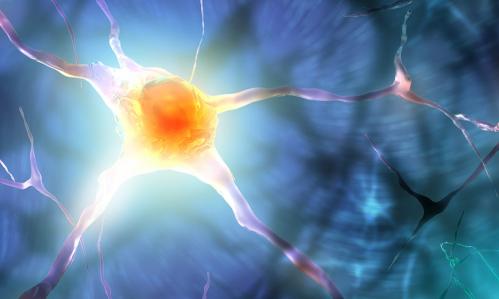
Posted: September 03, 2020
Researchers Discover Proteins in the Brain That Protect Synapses From Being Eliminated

Posted: August 20, 2020
Brainwave Study Reveals Oscillation Patterns That May Predict Transition to Psychosis

Posted: April 23, 2020
Genome Engineering Combined with Stem Cell Technology Provide Insights on Disruptions in Brain Development

Posted: March 31, 2020
Taking the Next Step in Understanding the Genetic Roots of Mental Illness

Connecting the Dots, From Genes to Brain Biology to Disorders
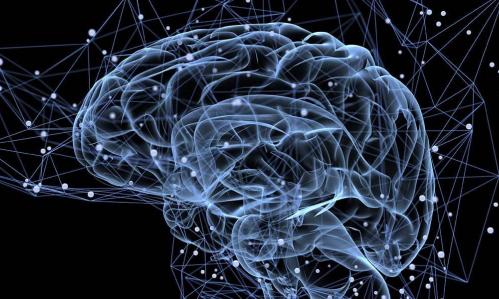
Posted: March 26, 2020
Progress is Reported on Research Exploring Use of Deep-Brain Stimulation for Psychosis, Schizophrenia

Posted: February 20, 2020
Maternal Inflammation Early in Pregnancy May Raise Offspring’s Psychosis Risk
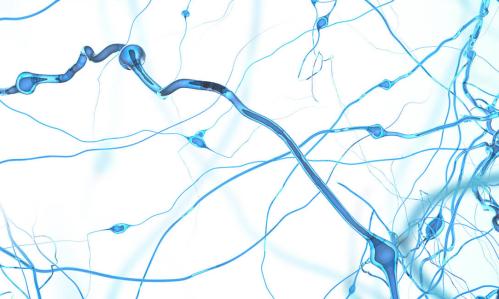
Posted: January 16, 2020
New Approach to Lessen Negative Symptoms in Schizophrenia is Based on Brain Circuit Discovery

Posted: January 09, 2020
Higher Maternal Choline Levels in Pregnancy Had Protective Role in Infant Brain Development
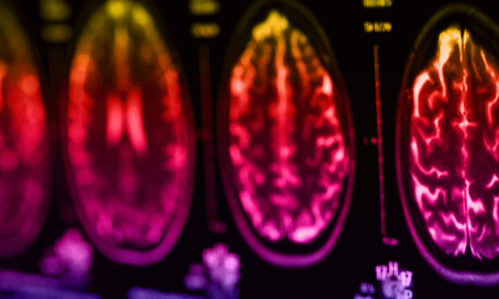
Posted: November 21, 2019
Imaging Study Links Changes in Function and Structure of the Hippocampus in Early Psychosis

Posted: November 14, 2019
After 60 Years, Study Finds Children of Mothers with Bacterial Infections During Pregnancy Have Elevated Psychosis Risk

Posted: October 24, 2019
Study Links an Early-Life Abnormality in the Auditory Cortex with Vulnerability to Hallucinations in Schizophrenia
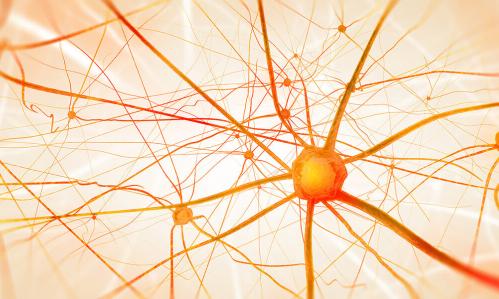
Posted: September 19, 2019
Low Levels of Cannabinoid Receptor in New Psychosis Patients Suggest a Possible Drug Target
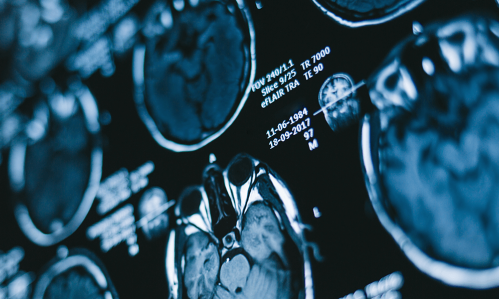
Posted: August 01, 2019
A Way of Predicting if New Psychosis Patients Will or Won’t Respond to Standard Treatment

Posted: June 30, 2019
RESEARCH FOR RECOVERY: Advances in Cognitive Remediation: ‘Helping Schizophrenia Patients Who Need It Most’
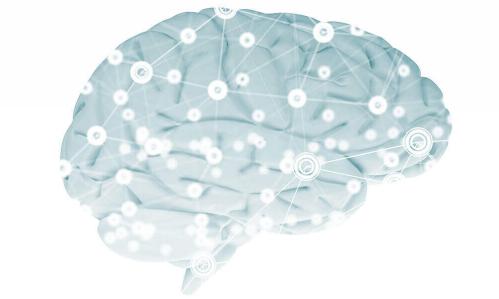
Posted: June 27, 2019
A Rarely Studied Brain Structure Provides New Clues About Psychosis
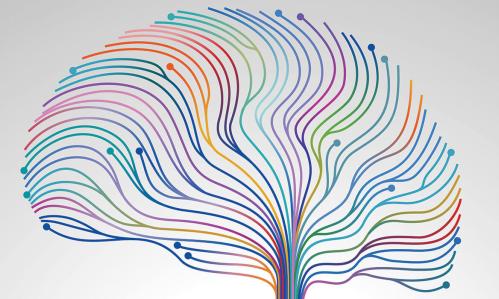
Posted: June 13, 2019
Evidence Links Abnormally Formed Proteins With Schizophrenia Pathology in Some Patients
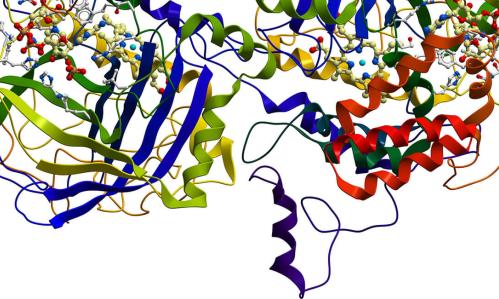
Posted: May 30, 2019
Research on Antioxidant Role in Schizophrenia and Psychosis Points to Possible Therapeutic Value of Compound Found in Broccoli
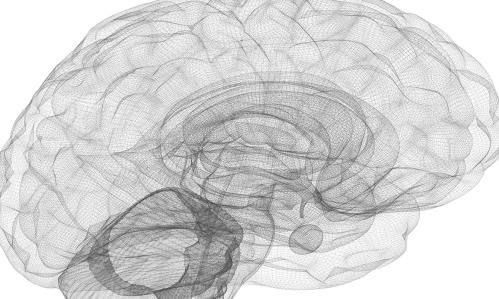
Posted: April 09, 2019
In a Comparison of Two Kinds of Cognitive Training, One Appeared to Help Schizophrenia Patients More
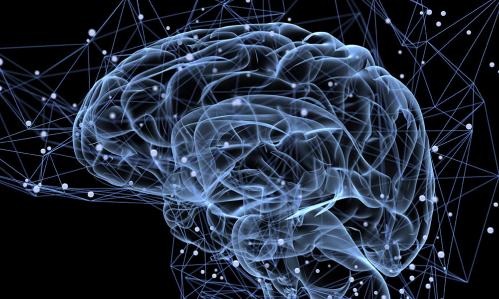
Posted: January 30, 2019
Adding Guanfacine Boosted Benefits of Cognitive Remediation Therapy in Schizophrenia Spectrum Disorder
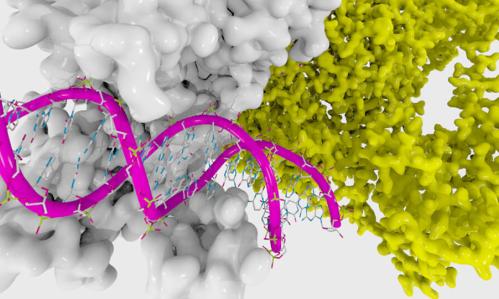
Posted: January 14, 2019
Researchers Study ‘Background’ Mutations That Can Impact Schizophrenia and Autism

Posted: November 05, 2018
The Brain Continues to Develop in Young People With Schizophrenia

Posted: October 22, 2018
Computer-Delivered Cognitive Training Significantly Helped Schizophrenia Patients in Rehab Setting

Posted: October 17, 2018
A Revealing Genetic Comparison of Schizophrenia and Bipolar Disorder

Posted: October 09, 2018
Boosting Motivation and Cognitive Deficits in Mental Illness
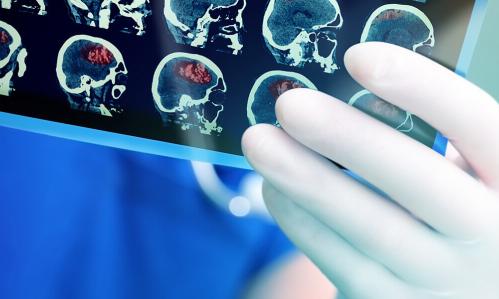
Posted: September 11, 2018
Machine-learning Helped Identify Newly Diagnosed Schizophrenia Patients and Predicted Treatment Response

Posted: August 29, 2018
Medicinal Herb May Relieve Worsening Symptoms of Schizophrenia

Posted: August 13, 2018
“Disorganized Thinking” in Psychosis is Linked to Brain Processing Problem in Cerebellum

Posted: July 27, 2018
Study Suggests Cannabis Compound Can Make Schizophrenia Medication Less Effective

Posted: July 25, 2018
Folic Acid-Fortified Foods During Pregnancy May Support Child’s Brain Development After Birth

Posted: July 12, 2018
Genetic Variations Reveal Which Patients Will Have Cognitive Benefits From Antipsychotic Medications
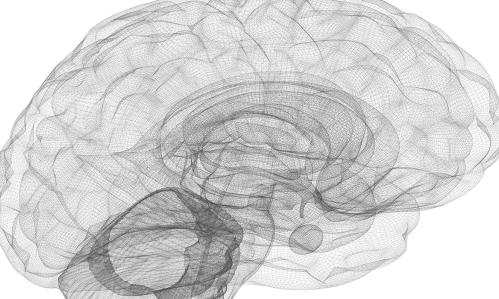
Posted: June 26, 2018
Schizophrenia-Linked Genes Leave Developing Brains Vulnerable During Complicated Pregnancies

Posted: June 20, 2018
Impairments in Brain’s White Matter Linked to Core Cognitive Deficits in Schizophrenia

Posted: April 03, 2018
Large Gene Expression Study Sheds Light on Causal Factors in Five Brain Disorders

Posted: March 20, 2018
A 21st-Century Approach to Treating Psychosis and Other Adolescent Mental Health Disorders

Treating Psychosis Patients Early and Comprehensively Has Resulted in Improved Outcomes

Molecular Picture Points the Way to Better Antipsychotic Medications

Posted: March 12, 2018
NAC Medication Improves Working Memory in Schizophrenia and Bipolar Patients with Psychosis

Posted: February 26, 2018
Social Impairment Levels Remain Stable in Patients with Psychotic Disorders

Posted: February 05, 2018
Analysis Reveals Accelerated Rates at Which the Brain’s Gray and White Matter Deteriorate in Schizophrenia

Posted: November 28, 2017
Genome-Wide Studies Aid Investigation of Dual Diagnosis of Schizophrenia and Substance Use Disorder

Posted: November 07, 2017
Researchers Uncover Neural Circuit that Underlies Interest in Novelty
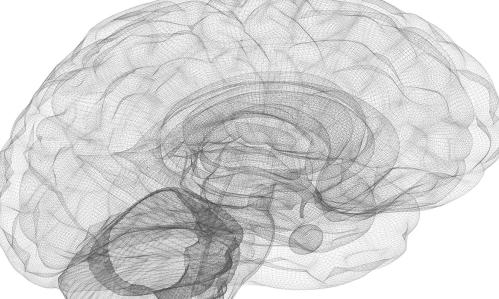
Posted: October 24, 2017
Studying Psychotic Symptoms in Marijuana Smokers at High Psychosis Risk
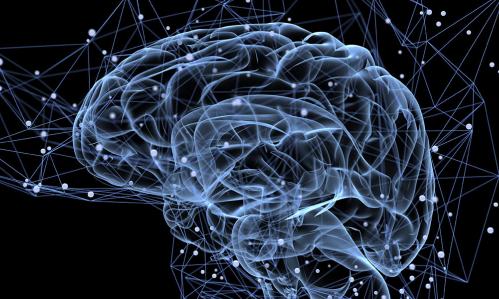
Posted: September 18, 2017
Research Shows ‘Exquisite’ Complexity of a Cell Network Regulating a Fear Circuit

Posted: August 29, 2017
New Calculator Helps Predict Risk of Developing Psychosis Across Diagnoses
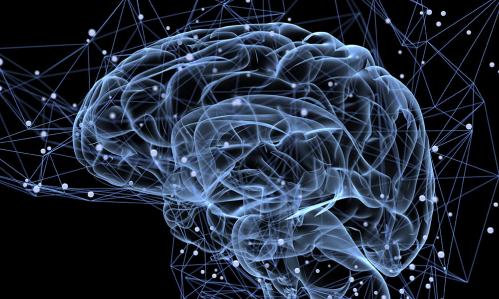
Posted: July 18, 2017
New Technique Lets Researchers Watch Human Brain Circuits Begin to Wire-Up
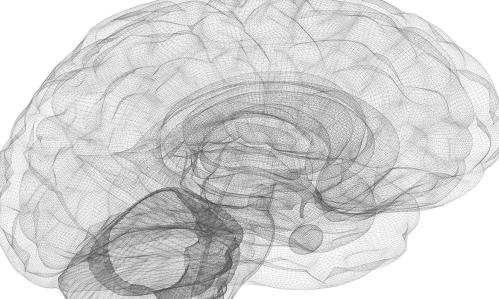
Posted: June 26, 2017
Study Uncovers Role for Cerebellum in Cognitive Defects in Schizophrenia

Posted: June 05, 2017
New Class of Drugs Shows Promise for the Treatment of Schizophrenia in Animal Models
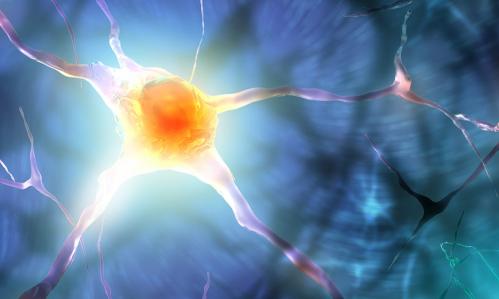
Posted: May 31, 2017
Study Reveals Weaker Brain Connections in Patients Who Did Not Receive Prompt Treatment for Psychosis
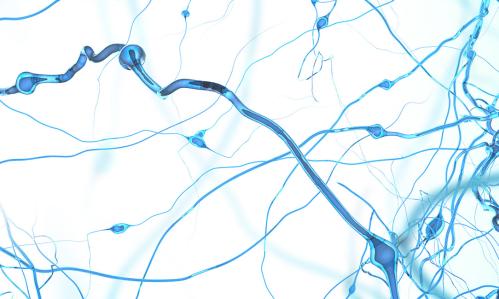
Posted: March 15, 2017
Diabetes Risk is Increased Even at the Start of Schizophrenia, Study Finds
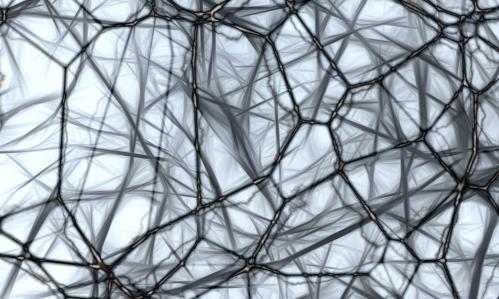
Posted: February 22, 2017
Two New Studies Offer Alternative Explanation of Impaired Cognitive Function in Schizophrenia

Posted: February 15, 2017
Neurofeedback App Improves Early Cognitive Deficit in People with High Psychosis Risk

Posted: February 14, 2017
Study of Psychosis Relapses Among Schizophrenia Patients Suggests Preventive Potential of Frequent In-Person Check-ins

Posted: February 08, 2017
Sleep Disturbances Linked to Symptom Severity Among Those At High Risk for Psychotic Disorders
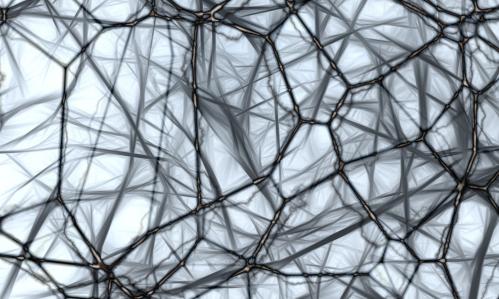
Posted: January 30, 2017
Research Indicates Cognitive Impairments are Early Symptoms of Psychotic Disorders
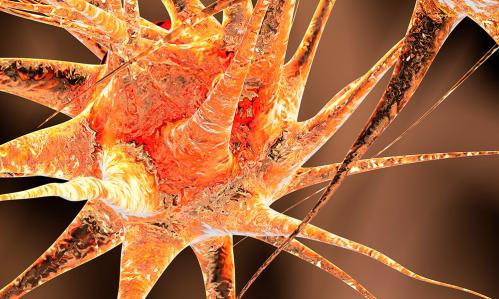
Posted: January 27, 2017
Mouse Study Reveals How Critical Connections Are Built in Early Brain
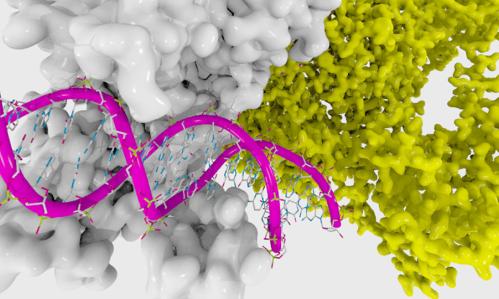
Posted: January 23, 2017
Blocking Overactive Enzyme Could Treat Schizophrenia Symptoms
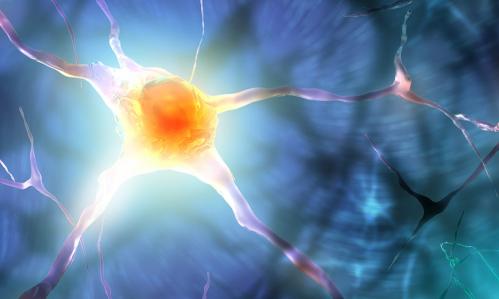
Posted: January 19, 2017
New Research Defines Molecular Pathway That May Cause Psychosis in Some Types of Schizophrenia
Posted: January 10, 2017
New Way of Studying DNA as it’s Bundled in Cells Reveals New Schizophrenia Risk Genes
Posted: November 17, 2016
Researchers Catalog Subtle but Widespread Schizophrenia-Associated Differences in Gene Activity

Posted: November 02, 2016
Researchers Pinpoint Neurons That Cause and Maintain Wakefulness

Posted: September 30, 2016
New Technique Recreates Large-Scale Genetic Errors Linked to Neurodevelopmental Disorders
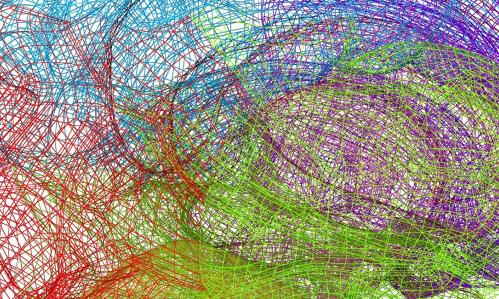
Posted: August 30, 2016
Study Finds Some Autism and Schizophrenia Related Genes May Also Be Involved in Bipolar Disorder

Posted: August 19, 2016
New Tool Calculates Patients’ Personal Psychosis Risk

Posted: July 27, 2016
Women Have More Gene Copy Number Variations Than Men, But This Doesn’t Increase Schizophrenia Risk as Expected

Posted: July 19, 2016
Doubt is Cast on the Contribution of Older Fathers’ Gene Mutations to Increased Mental Illness Risk in Their Children
Posted: July 13, 2016
Infections During Pregnancy Could Cause Developmental Disorders in Children

Posted: June 21, 2016
Prenatal Nicotine Exposure Raised Odds of Schizophrenia in Children
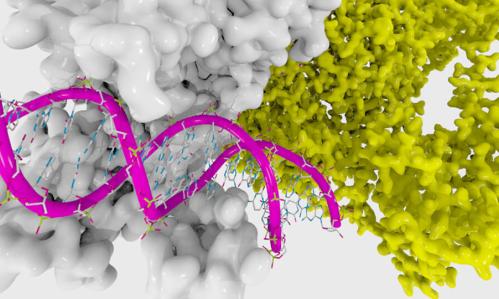
Posted: June 09, 2016
Gut Bacteria's Vital Role in Prefrontal Cortex, Brain's White Matter
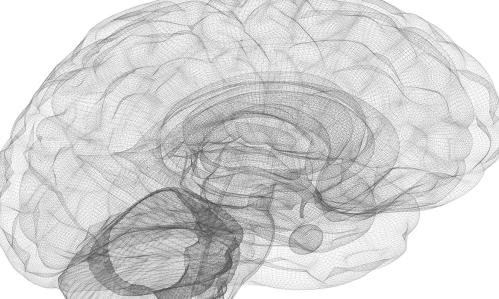
Posted: May 24, 2016
Could Anti-Inflammatory Meds Prevent Immune-Linked Brain Disorders?

Posted: May 16, 2016
Blood Markers Indicate High Inflammation Levels in People with Schizophrenia, Bipolar Disorder and Depression
Posted: May 05, 2016
Researchers Reverse Cognitive and Behavioral Deficits in New Mouse Model for Schizophrenia

Posted: May 02, 2016
How Genes May Help Determine Response to Antipsychotic Medications

Posted: May 01, 2016
Testing a Simple Strategy To Prevent Schizophrenia via Dietary Supplements
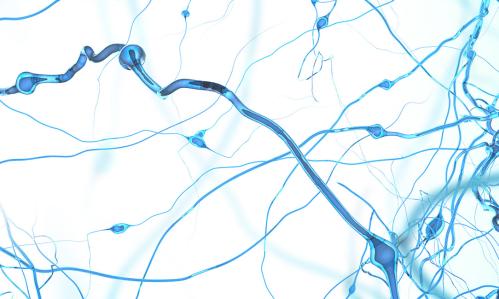
New Biotypes Classify Psychosis Cases According to Measurable Biological Features

Onset of Psychotic Disorders Differs Among Ultra-High Risk Groups
Posted: April 29, 2016
Children’s Schizophrenia Risk Correlated with Their School Performance vs. Family Members
Posted: April 12, 2016
New Experiments Reveal Brain Circuitry Behind Inability to Experience Pleasure

Posted: April 05, 2016
Immune Activity During Pregnancy Tied to Neuronal Defects, Anxiety, and Cognitive Impairments
Posted: March 21, 2016
A Role for Spontaneous Mutations in the Development of Childhood-Onset Schizophrenia
Posted: March 07, 2016
Abnormalities in a Highly Duplicated Genome Region May Reveal Continuities in Symptoms of Schizophrenia and Autism
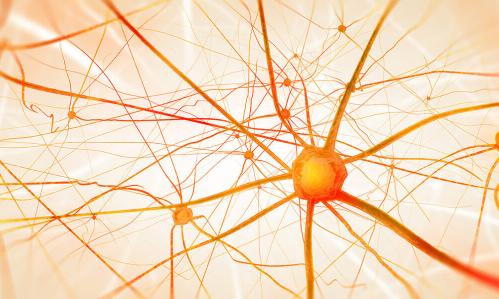
Posted: January 28, 2016
A Milestone in the Search for Schizophrenia’s Causes
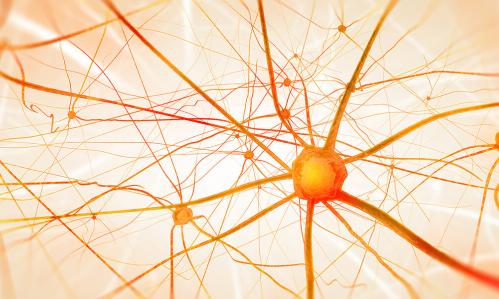
Posted: January 15, 2016
Overactive Immune Cells Precede Schizophrenia Diagnosis
Posted: January 11, 2016
Animal Study Offers New Clues to the Genetics of Schizophrenia
Posted: December 01, 2015
Connectivity Problems May Indicate Which Individuals are at Greatest Risk for Schizophrenia
Posted: November 20, 2015
Imaging Studies Reveal Affected Brain Regions in Schizophrenia
Posted: November 06, 2015
New Insights into the Genetic Basis of Schizophrenia

Posted: October 22, 2015
Hopeful News on Comprehensive Team Treatment of Early Psychosis
Posted: August 26, 2015
Non-Invasive Stimulation Reworks Brain Waves, Improves Cognition
Posted: July 31, 2015
Genes Linked to Abnormal Brain Waves in Schizophrenia, Psychotic Bipolar Disorder

Posted: July 20, 2015
New Compounds Show Promise in Treating Schizophrenia Symptoms
Posted: July 15, 2015
Can Smoking Tobacco Lead to Schizophrenia?
Posted: July 07, 2015
Schizophrenia-Related Gene Mutation Impairs Fear Processing in Mice
Posted: July 06, 2015
Genetic and Brain Structure Abnormalities Linked in Schizophrenia
Posted: June 26, 2015
Innovative Analysis Finds Unique Brain Structure Patterns in People with Schizophrenia
Posted: June 23, 2015
Brain Connectivity Problems Linked with Psychotic Disorders are Present in Youth with Less Severe Symptoms
Posted: June 16, 2015
Large Study Confirms Major Hypotheses in Schizophrenia Research
Posted: June 09, 2015
Estrogen Drug Improves Cognition in Schizophrenia Patients

Posted: June 01, 2015
Large-Scale Gene Mutation Disrupts Brain Development During Key Period

Posted: May 18, 2015
Gene Associated With Cognitive Deficits a Possible Target For Drug Treatment
Posted: May 11, 2015
Genetic Disorder Points to Cellular Communication Problems in Schizophrenia
Posted: April 24, 2015
Tracing a Circuit Between Two Brain Areas Points To New Schizophrenia Treatment Targets
Posted: April 21, 2015
Three-Month Dosage of Injectable Antipsychotic Prevents Return of Schizophrenia Symptoms
Posted: April 13, 2015
Neurosteroid Treatment Reduces Schizophrenia-Like Symptoms in Mice
Posted: April 10, 2015
Understanding the Link Between White Matter Abnormalities and Schizophrenia Symptoms
Posted: April 06, 2015
Imaging Reveals Specific Brain Circuit Differences in a Subtype of Schizophrenia
Posted: March 23, 2015
Early Cognitive Decline Predicts Later Psychosis in Children With a DNA Deletion Syndrome
Posted: March 20, 2015
Digging Deeper into the Cause of Cognitive Deficits in Schizophrenia
Posted: March 17, 2015
New Clues About How Healthy Circuits Form in Developing Brains
Posted: March 10, 2015
New Clues About a Brain Receptor, a Neurotransmitter, and Schizophrenia
Posted: February 05, 2015
Study Finds Brain-Wave Increase in People With Schizophrenia
Posted: January 30, 2015
Multiple Psychiatric illnesses Share the Same Perturbed Biological Pathways

Posted: January 22, 2015
To Better Understand Mental Disorders, Researchers Reverse Engineer Schizophrenia “in a Dish”
Genetic signals emerging on schizophrenia risk, targeting the d1 dopamine receptor to improve working memory in schizotypal personality disorder.
Posted: January 21, 2015

Early-Stage Schizophrenia Associated With Increased Prefrontal Cortex Connectivity That is Reversed Following Treatment
Posted: January 20, 2015
Wiring Anomalies in the Fetal Brain Due To a Faulty Protein May Be a Causal Factor in Schizophrenia

Posted: January 08, 2015
New Pharmaceutical Approach Shows Potential Benefit in More Narrowly Targeting Antipsychotic Medicines
Posted: January 07, 2015
Problems with Attention Traced to Specific Brain Circuit
Posted: December 18, 2014
Researchers Discover New Regions of the Genome That Contribute to the Risk of Schizophrenia
Posted: December 09, 2014
IQ Study Finds Environmental and Genetic Factors in Schizophrenia Risk
Posted: December 03, 2014
Psychotic Symptoms in Young People Foreshadow Later Problems
Posted: November 22, 2014
Developing Risk Profiles for Schizophrenia
Posted: November 05, 2014
The Life of a Spine: Neuron Communication and Schizophrenia
Posted: October 23, 2014
What Causes the Placebo Effect in Clinical Trials of Antipsychotic Medications?
Posted: October 16, 2014
Study Offers New Insight into What Causes Learning Impairment in Schizophrenia
Posted: October 10, 2014
World Mental Health Day: “Living with Schizophrenia”
Posted: September 29, 2014
International Collaborative Effort Develops the Beginnings of a Blood Test for Psychosis
Posted: September 25, 2014
Stem Cell Technology Offers New Insight into Brain Mechanisms Underlying Schizophrenia
Posted: September 18, 2014
Bolstering Reading Skills Could Improve Outcomes in Schizophrenia
Posted: September 16, 2014
Electroconvulsive Therapy, with Clozapine, Shows Promise for Patients with Treatment-Resistant Schizophrenia
Posted: September 10, 2014
Finding Common Roots Across Spectrum of Psychosis May Improve Early Intervention Techniques
Posted: September 08, 2014
Congratulations to Mary-Claire King, Ph.D., Foundation Scientific Council Member, for 2014 Lasker Award!
Posted: September 04, 2014
Psychosocial Training Shows Promise as Supplemental Treatment for Schizophrenia
Posted: September 02, 2014
Resting State Brain Imaging Points to Differences in Early- and Late-Stage Schizophrenia
Posted: August 27, 2014
NARSAD Grantee Discovers Clues to New Pathways for Treatment of Schizophrenia
Posted: August 25, 2014
Can Antioxidants Help Prevent and /or Treat Symptoms of Schizophrenia?

Posted: August 21, 2014
With New Technology, Researchers See How Faulty Human Brain Cells Develop
Posted: August 15, 2014
Foundation-Funded Researcher Identifies Brain “Switchboard” that May Malfunction in Autism, Schizophrenia
Posted: August 08, 2014
Foundation-Supported Research Finds “Helper” Cells in Brain Actually Support Memory Function
Posted: July 25, 2014
“Reprogramming” of Genes Causes Some Symptoms of Mental Illness—May Be Reversible
Posted: July 22, 2014
Advancing Genetics Offer Promise for Developing Risk Profiles, Better Treatments for Schizophrenia
Posted: July 17, 2014
Maternal Infection, Inflammation during Pregnancy Linked to Baby's Risk for Schizophrenia
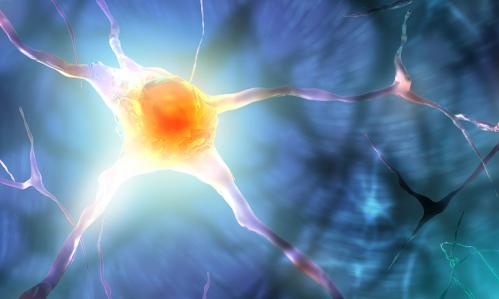
Posted: July 15, 2014
Stem Cell Technology Offers Rare Inside View of Brain Development and Schizophrenia
Posted: July 07, 2014
New Global Study Quantifies Risk of Mental Illness from Genetic Deletion Syndrome
Posted: July 03, 2014
Dr. Sanjay Gupta of CNN Quotes Foundation President in Articles on Schizophrenia
Posted: July 02, 2014
Gender Differences in the Adolescent Brain that May Link to Mental Illness
Posted: July 01, 2014
New Technique Identifies Genetic Underpinning of Disrupted Brain Connectivity in Schizophrenia
Posted: June 20, 2014
Researchers Complete Picture of How Brain Mechanism Linked to Depression, Schizophrenia Functions
Posted: June 19, 2014
Gene Linked to Bipolar Disorder, Schizophrenia Plays Key Role in Brain Development
Posted: June 17, 2014
NARSAD Grantees Advance Knowledge of Genetics and Early Brain Development in Schizophrenia
Posted: June 05, 2014
Released Today: New Insight into Root Cause of Auditory Hallucinations in Schizophrenia
Posted: June 02, 2014
Foundation-Funded Research Suggests Prenatal Beginnings of Schizophrenia, Could Aid Early Diagnosis
Posted: May 30, 2014
Genetic Sequencing Technology Helps Identify Mutations Linked to Development of Schizophrenia
Posted: May 19, 2014
Transplanting Brain Cells, Researchers Discover Potential Approach to Treat or Prevent Psychosis
Posted: May 08, 2014
Novel Approach Leads to Discovery of Disruption in Brain Connectivity in Schizophrenia
Posted: April 30, 2014
Study on Genetic Variability in Schizophrenia May Improve Prevention and Treatment Strategies
Posted: April 17, 2014
Foundation-Supported Research Advances Technology to Study Developmental Mechanisms of Schizophrenia
Posted: April 10, 2014
Misfiring Brain Signals in Schizophrenia Distort View of Reality
Posted: April 07, 2014
NARSAD Grantee Finds Experimental Compound Reverses Schizophrenia Symptoms in Mice
Posted: March 19, 2014
Brain Mapping Furthers Understanding of Why Imitation is Difficult in Schizophrenia
Posted: March 17, 2014
Scalp EEG Test May Be Able to Predict Future Psychosis
Posted: March 10, 2014
Genetic Analysis Offers New Insight into Memory Impairment in Schizophrenia
Posted: March 07, 2014
NARSAD Grantee Develops 3-D Picture of Protein Important in Schizophrenia
Posted: March 05, 2014
Integrated Approaches to Develop Improved Schizophrenia Therapies
Fine-tuning the circuitry in the brain and intervening early on: exciting next-generation treatment possibilities.
Posted: February 13, 2014
Crossed Wires in the Brain as Potentially Reversible Cause of Schizophrenia
Posted: January 27, 2014
New Understanding of Genetics Behind Schizophrenia From International, Collaborative Research Efforts
Effective brain communication impeded by “new” genetic mutations, progress in identifying sets of genes linked to schizophrenia, solving the schizophrenia puzzle, what makes some genes disrupt brain development, next generation therapies for schizophrenia: from specific genetic mutations to targeting repair pathways.
Posted: January 17, 2014
2013 Baer Prizewinner With a Dream: "To Re-Connect the Soul to the Mind... the Soul to the Brain" - Watch Video
Posted: January 13, 2014
New Technology Assesses Brain Plasticity, May Help with Schizophrenia, Depression
Posted: January 09, 2014
New Research Shows “Jumping Genes” Could Contribute to Schizophrenia
Posted: January 02, 2014
2013 NARSAD Grant Supports Discovery of Genetic Overlap Between Schizophrenia and Cognitive Ability
Posted: December 17, 2013
NARSAD Grant Furthers Exploration of Link between Older Fathers and Mental Illness
Posted: December 16, 2013
NARSAD Young Investigator Grantee Invents New Technology to Study Brain Plasticity
Posted: December 12, 2013
Chicken or Egg? New Research Shows Men and Women’s Brains are Wired Differently
Posted: December 02, 2013
Why do Antibodies Found in the Blood Only Sometimes Link to Neuropsychiatric Illness?
Posted: November 22, 2013
Discovery of First Genetic Protective Factor for Schizophrenia
Posted: October 25, 2013
Esteemed Schizophrenia Researcher, Marc G. Caron, Awarded with 2013 Lieber Prize
Posted: October 24, 2013
Electrical Stimulation Can Improve Cognitive Performance―May Help in Schizophrenia, Bipolar Disorder
Posted: October 23, 2013
Founding Foundation Scientific Council Member Awarded International Mental Health Prize
Posted: October 22, 2013
State of MD Supports Foundation Scientific Council Member’s Early Intervention in Psychosis Program

Researchers Find Way to Increase Neuroplasticity and Treat “Negative” Symptoms of Schizophrenia
Posted: October 21, 2013
Looking for What May Cause Disordered Thinking (“Cognitive Deficits”) in Schizophrenia

Posted: October 08, 2013
Defining Psychotic Disorders―Mood Disorders and Schizophrenia―by Symptom Course and Long-Term Outcome
Posted: October 04, 2013
Pre-Term Birth Associated with Higher Risk of Mental Illness, But Also for Siblings
Posted: September 26, 2013
Long-Term Study of Children Shows Progressive Nature of Thinking Difficulties in Schizophrenia
Posted: August 15, 2013
New Schizophrenia Genes Discovered Through Innovative Genetic Sequencing Approach
Serotonin discovery via x-ray crystallography points toward more precise treatments.
Posted: August 02, 2013
Parent’s Diet May Impact Child’s Mental Health Shows NARSAD Grantee Generational Study
Posted: July 18, 2013
Genetic Sequencing Technology Helps Uncover New Potential Causes of Schizophrenia
Posted: July 16, 2013
Foundation Grantees Link Oxidative Stress with Mental Illness Risk Gene
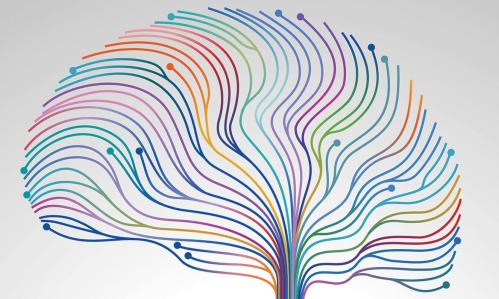
Posted: July 05, 2013
Brain & Behavior Research Foundation-Funded Study Links Schizophrenia, Inflammation & Bacteria
Posted: July 03, 2013
Is Smoking Self Medication? New NARSAD Grant Research Provides Critical Insights
Posted: July 01, 2013
NARSAD Grant-Funded Discoveries Offer New Treatment Target for Schizophrenia
Posted: June 27, 2013
NARSAD Grantees Discover Potential for Treatment to Reverse Schizophrenia Symptoms
Posted: June 24, 2013
NARSAD Grantee Co-Leads Mammoth Effort to Dissect Mental Illness Risk Gene
Posted: June 20, 2013
NARSAD Grant-Funded Research Helps Identify Mechanisms To Improve Schizophrenia Treatment
Posted: June 14, 2013
Discovery Using Optogenetics May Help Fine-Tune Treatments for Schizophrenia Symptoms
Posted: June 10, 2013
New Computational Method Helps Decode Complex Circuitry of the Brain
Posted: June 07, 2013
Cutting-Edge Stem Cell Technology Offers New Insight Into Development of Schizophrenia
Posted: June 06, 2013
Relapse & Antipsychotic Treatment in Schizophrenia Change Brain
Posted: May 30, 2013
NARSAD Grantees Reverse Schizophrenia Symptoms in Adult Animals
Posted: May 21, 2013
Damaged Protective ‘Net’ May Cause Malfunction in Brain Cells in Schizophrenia
Posted: May 13, 2013
FDA Expedites New Psychosis Treatment Developed by Scientific Council Member
Posted: May 09, 2013
A New Window to Study Mental Illness: Stem Cells Converted to Brain Cells
Posted: May 02, 2013
The Nose May Know: Study Finds New Potential Way to Diagnose Schizophrenia
Posted: April 29, 2013
Foundation-Funded Study Identifies Schizophrenia Early Warning Sign
Posted: April 17, 2013
NARSAD Grantee Maps Brain Navigation – Insights May Help Treat Schizophrenia
Posted: April 18, 2013
How Studies With Children Are Helping Identify Early Developmental Links to Mental Illness
Intervening in early psychosis with computer-based brain training.
Posted: April 16, 2013
Understanding Healthy Brain Function Furthers Progress in Identifying Causes of Schizophrenia
Posted: April 03, 2013
New Schizophrenia Genes Discovered Through Innovative Genetic Sequencing
Posted: March 29, 2013
NARSAD Grantees Link Altered Brain Activity to Schizophrenia Cognitive Symptoms
Posted: March 21, 2013
New Technology Enables New Insights Pointing toward Safer Schizophrenia Medications
Posted: March 14, 2013
NARSAD Grant-Funded TMS Now Found Effective in Treating Schizophrenia Symptoms
Posted: March 12, 2013
NARSAD Grantee Discovers Predictor of Psychosis in Bipolar Disorder, Schizophrenia
Posted: March 06, 2013
Single Gene Plays Defining Role in Schizophrenia Symptoms and Outcomes
Posted: March 01, 2013
Recovery Interventions that Promote Productive Lives
Posted: February 25, 2013
NARSAD Grantee Helps Uncover Schizophrenia Warning Sign
Posted: February 19, 2013
NARSAD Grantee ‘2012 Editor’s Choice’ for Work on Recovery from Schizophrenia
Posted: February 12, 2013
Discovery Links Inflammation to Schizophrenia Onset, May Aid Early Intervention/Prevention
Posted: February 07, 2013
Foundation Grantees Develop Brain Atlas to Aid Understanding of Autism, Schizophrenia
Posted: February 01, 2013
Identifying What Keeps Electrical Impulses in the Brain Balanced—Linked to Schizophrenia
Posted: January 25, 2013
NARSAD Grant-Funded Research Identifies New Genetic Link to Development of Schizophrenia
Posted: January 21, 2013
Foundation-Funded Research Helps Identify How Adolescent Stress Can Cause Mental Illness
Posted: January 18, 2013
Schizophrenia Research Forum Features Paper with Discoveries on Genetic Deletion Syndrome
Posted: January 15, 2013
Released Today: Supplement Shows Promise for Preventing Schizophrenia
Posted: January 14, 2013
Learning About Individual Genetics Alleviates Suffering for Patients with Schizophrenia
Posted: December 27, 2012
2012 Highlights: A Sampling of NARSAD Grants at Work
Posted: December 17, 2012
Cells and Circuits: Neurotransmission with a Focus on Dopamine
Cognitive remediation activates neuroplasticity and improves social cognition in schizophrenia.
Posted: November 30, 2012
NARSAD Grantees Lead Study Pointing To Novel Pathways for Treatment of Schizophrenia
Posted: November 29, 2012
2008 Lieber Prizewinner Wins 2013 Grawemeyer Award for Schizophrenia Research
Posted: November 27, 2012
NARSAD Grant-Funded Research Furthers Understanding of What Makes Us Human
Posted: November 26, 2012
Dr. Walters Receives Sidney R. Baer, Jr. Prize for Innovative Schizophrenia Research
Posted: November 02, 2012
Dr. Michael Owen Recognized for Outstanding Achievement in Schizophrenia Research
Narsad grant-funded research identifies where empathy originates in the brain.
Posted: November 01, 2012
Prestigious Lieber Prize for Schizophrenia Research Goes to Dr. Michael O’Donovan
Posted: October 15, 2012
NARSAD Grantee Identifies New Pathway to Treat Schizophrenia
Posted: October 11, 2012
NARSAD Grantees Identify New Genetic Mutations that Cause Schizophrenia
Posted: September 24, 2012
Premature Birth Heightens Risk for Mental Illness
Comprehensive identification of key genetic players in schizophrenia, a natural laboratory: using an isolated population to study schizophrenia genes, translating epigenetics into novel therapies for autism and schizophrenia.
Posted: August 23, 2012
NY Times: New Study Confirming Risk of Autism and Schizophrenia Increases with Father’s Age
Posted: August 07, 2012
Creating a New Window to Study Synaptic (Dys)Function in Brain and Behavior Disorders
Posted: July 20, 2012
NARSAD Grantee Leads Team That Links Two Risk Factors for Schizophrenia
Posted: July 05, 2012
NARSAD Grant-funded Research Finds Links Between Schizophrenia, Bipolar and Autism
Posted: July 03, 2012
NARSAD Grantee Discusses Innovative Work to Understand and Better Treat Mental Illnesses
Posted: June 28, 2012
FDA to Evaluate Computer-Based Treatment for Cognitive Symptoms in Schizophrenia
Posted: June 19, 2012
NARSAD Grant-Funded Research Identifies Genetic Links in Weight Gain from Antipsychotics
Posted: June 04, 2012
NARSAD Grant-Funded Research Finds Premature Birth Increases Risk for Mental Illness
Posted: May 17, 2012
NARSAD Grantee Leads Breakthrough Research that Identifies the Genetic Code of Schizophrenia
Posted: March 29, 2012
New Discovery On Link Between Early Life Stress and Genetic Susceptibility in Schizophrenia
Posted: March 20, 2012
New Computer Program Improves Behavioral Symptoms and Brain Activity in Schizophrenia
Posted: March 12, 2012
25 Years of Outstanding Schizophrenia Research: The Lieber Prize
Posted: February 29, 2012
NARSAD Grantees Make Breakthrough to Improve Cognition in Schizophrenia
Posted: February 07, 2012
Scientific Council Member Outlines the Progress in – and Need for – Mental Health Research
Posted: January 20, 2012
SC Member Makes Discovery About Teen Susceptibility to Depression and Schizophrenia
Posted: January 19, 2012
A New, Quick Approach to Predict Future Course of Psychosis
Posted: January 06, 2012
Foundation-funded Discovery: Early Childhood Immigration Linked to Psychotic Disorders
Posted: January 05, 2012
NARSAD Grantee Makes New Discovery About Brain Malfunction in Schizophrenia
Posted: December 30, 2011
Basic Research and Novel Therapeutic Treatments Pave the Road to Cures for Mental Illness
Posted: December 05, 2011
Foundation Web-based Schizophrenia Research Forum Honored by ACNP
Posted: November 30, 2011
A Scientist Writes About Autism, Schizophrenia and their Causes
Posted: November 29, 2011
Foundation-funded Investigator Honored for Mental Illness Research Achievements
Posted: November 21, 2011
World-Renowned Investigator’s Personal Connection to Schizophrenia
Posted: November 18, 2011
BBC “Mental Health Revolution” Features Foundation-Funded Psychiatry Research
Posted: November 15, 2011
Coping with Psychosis: Using CBT to Manage Persistent Symptoms
‘father of cbt’ demonstrates its effectiveness treating low-functioning schizophrenia patients, genome-wide studies identify 11 new genetic links to schizophrenia and bipolar disorder.
Posted: November 09, 2011
Breakthrough in Schizophrenia Research by Foundation's 2011 Outstanding Prizewinner
Posted: November 03, 2011
Scientific Council Member Leads Effort that Reprograms Skin Cells to Grow Brain Cells in Lab
Brain & behavior research foundation scientific council member discovers key dopamine receptor structure.
Posted: October 24, 2011
New Understanding of Autism and Schizophrenia in Adolescence?
Posted: October 10, 2011
Outstanding Achievement Prizewinner Makes Discovery, Progressing Research for New Schizophrenia Treatments
Posted: October 06, 2011
NY Times Features Breakthrough in Treatment of Schizophrenia by Foundation-funded Scientist
Posted: October 03, 2011
A “GPS” System for Brain Cells is Created by 2011 NARSAD Distinguished Investigator Grantee
Posted: September 26, 2011
Understanding Why Identical Twins Are Not Carbon Copies in Mental Illness
Posted: September 22, 2011
Foundation Honors Scientists For Outstanding Achievements in Mental Illness Research
Posted: September 15, 2011
The Saturday Evening Post features NARSAD Grantees’ breakthrough insight on link between maternal infection and mental illness
Posted: August 26, 2011
NARSAD Distinguished Investigator Demonstrates Working Memory Can Be Restored in Elderly Primates
Foundation-funded discovery points toward genetic networks that predispose to schizophrenia.
Posted: July 26, 2011
Foundation-funded Study Supports Hypothesis That Davunetide Prevents Cortical Thinning in Brains of Schizophrenia Patients
Posted: May 26, 2011
Brain and Behavior Research Foundation-Funded Study Provides Explanation for Why People with Schizophrenia Have Difficulty with Social Cues
Posted: April 11, 2011
Leading Researcher Uses Innovative Ways To Improve Treatments
Twenty-year career leading discoveries into the complex circuitry of the brain points toward more effective treatments, foundation-funded discovery of new schizophrenia gene could lead to new diagnostic and therapy possibilities.
Posted: March 23, 2011
NARSAD Investigator Makes Major Breakthrough in Understanding Brain Function
Posted: March 01, 2011
Stem Cells Offer New Insight into Helping the Brain Regenerate
Narsad-funded research breakthrough could improve treatment of schizophrenia.
Posted: February 17, 2011
Upcoming Conference: “Advancing Drug Discovery for Schizophrenia”
Posted: February 07, 2011
Hearing from NARSAD Young Investigators (Part 2)
Posted: February 04, 2011
The NARSAD Feed: NARSAD-Funded Discoveries, Economics of (Mental) Health Care Reform, Meditation and Your Brain
Posted: February 01, 2011
NARSAD Supports Innovative Technologies That Improve Treatment of Mental Illness
Narsad scientific council member discovers key dopamine receptor structure.
Posted: January 03, 2011
NARSAD-Funded Research Suggests Brain Scans Could Predict Onset of Schizophrenia
Posted: December 13, 2010
A very grand vision: “We will discover the causes of mental illnesses so that we can someday develop prevention protocol to keep people from developing these illnesses”
Posted: November 01, 2010
NARSAD-Funded Research Identifies New Gene Candidate for Schizophrenia
Leading the way - a brilliant mind in schizophrenia research sees cause for optimism, can studies of substance abuse in schizophrenia lead to better medications.
Posted: October 01, 2010
NARSAD Researcher Makes Progress Toward His Goal of Prevention of Schizophrenia and Other Mental Illnesses
Posted: September 01, 2010
NARSAD Researcher Makes Discovery in Brain’s Decision-Making Process
Posted: April 10, 2010
Schizophrenia: Is Recovery Possible?
‘retraining the brain’ in patients with schizophrenia.

Posted: April 01, 2010
Mary-Claire King and Judith Rapoport: New Hope From Discovery of Rare Genetic Mutations in Schizophrenia
Aaron beck: reducing schizophrenia’s negative symptoms.

Posted: April 25, 2008
Discovery of Important Genetic Links to Schizophrenia
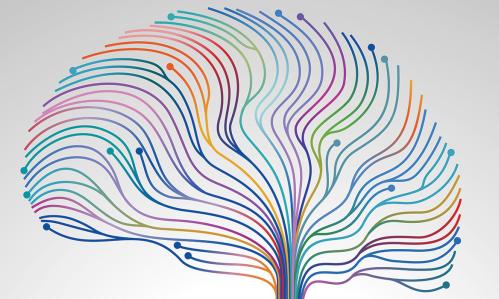
Posted: November 01, 2003
Identification of Genes Associated with Schizophrenia

Posted: April 01, 1996
Discovery of Novel Gene-Regulating Molecule (Transcription Factor) that Mediates Effects of Stress

Posted: December 01, 1989
Approval of Clozapine to Treat Resistant Schizophrenia
Key figures.

3.5 million adults (1.1%) of the US Adult population live with schizophrenia*
* Source: National Institute of Mental Health
More than 21 million people worldwide are affected by schizophrenia*
* Source: World Health Organization (WHO)
Featured Tweet
New risk genes for #schizophrenia have been discovered by studying DNA in highly compressed bundles. TWEET
Meet a Researcher

Mary-Claire King, Ph.D.
American Cancer Society Professor
Professor, Medical Genetics
Professor, Genome Sciences
Adjunct Professor, Epidemiology
Department of Medicine and the Department of Genome Sciences
University of Washington-Seattle
Scientific Council Member (Joined 2009)
2006 Distinguished Investigator Grant
Ask an Expert

Huda Akil, Ph.D.
Gardner Quarton Distinguished University Professor of Neuroscience and Psychiatry
Co-Director, Molecular and Behavioral Neuroscience Institute
2007 Goldman-Rakic Prize for Outstanding Achievement in Cognitive Neuroscience
In your work with the Pritzker Neuropsychiatric Research Consortium, have you uncovered any new genes that you think might be related to mental illnesses besides major depression?
- More Questions
Learn More About the Foundation
The Brain & Behavior Research Foundation is a global nonprofit organization focused on improving the understanding, prevention and treatment of psychiatric and mental illnesses.
Beginning in 1987, the Brain & Behavior Research Foundation was providing seed money to neuroscientists to invest in “out of the box” research that the government and other sources were unwilling to fund. Today, Brain & Behavior Research Foundation is still the leading, private philanthropy in the world in this space.
Meet the people who make up the Brain & Behavior Research Foundation. Our staff of experts, passionate Board of Directors, and Scientific Council which includes Nobel prize winners and chairs of psychiatric departments around the world.
Annual Report & Financials
We take our responsibility to our donors seriously and believe that our financial operations must be transparent. We're proud to say that 100% of your contribution for research is invested directly in research grants.
Frequently Asked Questions about the Brain & Behavior Research Foundation.
The latest news on brain and behavior research and issues that matter most to you.
Donations are welcome
100% of every dollar donated for research is invested in our research grants. Our operating expenses are covered by separate foundation grants.
The Brain & Behavior Research Foundation is a 501(c)(3) nonprofit organization, our Tax ID # is 31-1020010.
Study uncovers cell type-specific genetic insights underlying schizophrenia
Schizophrenia is a complex disease with variable presentations, and the diverse nature of this mental health disorder has made understanding the mechanisms that cause the disease, and subsequently developing effective treatments, especially challenging. In a new study, published May 23 is Science , a team led by McLean Hospital researchers used comprehensive genetic and cellular analyses to shed new light on the intricate molecular mechanisms underlying schizophrenia. Their new work provides a map for how the genes known to increase risk of schizophrenia affect specific cells within the brain.
"We discovered which cell types express genes associated with schizophrenia risk differently, which biological functions are impacted within those cells, and which transcription factors are important for these changes," explained lead and co-corresponding author, W. Brad Ruzicka MD, PhD, director of the Laboratory for Epigenomics in Human Psychopathology at McLean Hospital. "This understanding will allow future treatments to be tailored to specific genes and cell types, as well as individuals with schizophrenia."
Schizophrenia affects approximately 24 million people, or 1 in 300 people, worldwide, according to the World Health Organization.
For the new study, a multi-center team of researchers conducted a comprehensive single-cell analysis of transcriptomic changes in human prefrontal cortex, examining postmortem brain tissue from 140 individuals across two independent cohorts. Their analyses included more than 468,000 cells.
They uncovered unprecedented insights into the cellular basis of schizophrenia, linking genetic risk factors to specific neuronal populations. Specifically, the researchers found that excitatory neurons emerged as the most affected cell group, with transcriptional changes implicating neurodevelopment and synapse-related pathways. Additionally, they found that known genetic risk factors for schizophrenia converge on alterations in specific neuronal populations, highlighting the interplay between rare and common genomic variants. Through transcriptomic analysis, two distinct subpopulations of individuals with schizophrenia were identified, marked by the expression of specific excitatory and inhibitory neuronal cell states.
The new study suggests potential links between schizophrenia pathology and processes such as neurodevelopment, synaptic signaling, and transcriptional regulation, implicating key transcriptional regulators associated with both schizophrenia and neurodevelopmental disorders.
The study's authors anticipate that insights gleaned from this research could pave the way for targeted interventions and personalized treatments for schizophrenia, potentially improving clinical outcomes for individuals affected by this debilitating and often disabling disorder.
The research team is now working to expand on these findings by investigating other regions of the brain and the molecular impact of other psychiatric diseases such as bipolar disorder. They are also pursuing another dimension of complexity in this system by investigating isoform expression of implicated genes and how these cell type-specific gene expression changes lead to functional and potentially druggable changes in the protein space.
"This work advances understanding of schizophrenia pathophysiology at greater detail across both the complex landscape of cells within the brain, and the diverse experiences of people with this disease," said Ruzicka, who is also associate medical director of Harvard Brain Tissue Resource Center at McLean, and an assistant professor of Psychiatry at Harvard Medical School. "Our increased mechanistic understanding of schizophrenia provides avenues for future research to unravel the genetic and environmental underpinnings of this complex disease so we can provide our patients better care."
- Mental Health Research
- Personalized Medicine
- Nervous System
- Brain Tumor
- Schizophrenia
- Mental Health
- Disorders and Syndromes
- Stem cell treatments
- Adult stem cell
- Positron emission tomography
- COX-2 inhibitor
- Dopamine hypothesis of schizophrenia
- Personalized medicine
Story Source:
Materials provided by McLean Hospital . Note: Content may be edited for style and length.
Journal Reference :
- W. Brad Ruzicka, Shahin Mohammadi, John F. Fullard, Jose Davila-Velderrain, Sivan Subburaju, Daniel Reed Tso, Makayla Hourihan, Shan Jiang, Hao-Chih Lee, Jaroslav Bendl, Georgios Voloudakis, Vahram Haroutunian, Gabriel E. Hoffman, Panos Roussos, Manolis Kellis, Schahram Akbarian, Alexej Abyzov, Nadav Ahituv, Dhivya Arasappan, Jose Juan Almagro Armenteros, Brian J. Beliveau, Sabina Berretta, Rahul A. Bharadwaj, Arjun Bhattacharya, Lucy Bicks, Kristen Brennand, Davide Capauto, Frances A. Champagne, Tanima Chatterjee, Chris Chatzinakos, Yuhang Chen, H. Isaac Chen, Yuyan Cheng, Lijun Cheng, Andrew Chess, Jo-fan Chien, Zhiyuan Chu, Declan Clarke, Ashley Clement, Leonardo Collado-Torres, Gregory M. Cooper, Gregory E. Crawford, Rujia Dai, Nikolaos P. Daskalakis, Amy Deep-Soboslay, Chengyu Deng, Christopher P. DiPietro, Stella Dracheva, Shiron Drusinsky, Ziheng Duan, Duc Duong, Cagatay Dursun, Nicholas J. Eagles, Jonathan Edelstein, Prashant S. Emani, Kiki Galani, Timur Galeev, Michael J. Gandal, Sophia Gaynor, Mark Gerstein, Daniel H. Geschwind, Kiran Girdhar, Fernando S. Goes, William Greenleaf, Jennifer Grundman, Hanmin Guo, Qiuyu Guo, Chirag Gupta, Yoav Hadas, Joachim Hallmayer, Xikun Han, Natalie Hawken, Chuan He, Ella Henry, Stephanie C. Hicks, Marcus Ho, Li-Lun Ho, Yiling Huang, Louise A. Huuki-Myers, Ahyeon Hwang, Thomas M. Hyde, Artemis Iatrou, Fumitaka Inoue, Aarti Jajoo, Matthew Jensen, Lihua Jiang, Peng Jin, Ting Jin, Connor Jops, Alexandre Jourdon, Riki Kawaguchi, Joel E. Kleinman, Steven P. Kleopoulos, Alex Kozlenkov, Arnold Kriegstein, Anshul Kundaje, Soumya Kundu, Cheyu Lee, Donghoon Lee, Junhao Li, Mingfeng Li, Xiao Lin, Shuang Liu, Jason Liu, Jianyin Liu, Chunyu Liu, Shuang Liu, Shaoke Lou, Jacob M. Loupe, Dan Lu, Shaojie Ma, Liang Ma, Michael Margolis, Jessica Mariani, Keri Martinowich, Kristen R. Maynard, Samantha Mazariegos, Ran Meng, Richard M. Myers, Courtney Micallef, Tatiana Mikhailova, Guo-li Ming, Emma Monte, Kelsey S. Montgomery, Jill E. Moore, Jennifer R. Moran, Eran A. Mukamel, Angus C. Nairn, Charles B. Nemeroff, Pengyu Ni, Scott Norton, Tomasz Nowakowski, Larsson Omberg, Stephanie C. Page, Saejeong Park, Ashok Patowary, Reenal Pattni, Geo Pertea, Mette A. Peters, Nishigandha Phalke, Dalila Pinto, Milos Pjanic, Sirisha Pochareddy, Katherine S. Pollard, Alex Pollen, Henry Pratt, Pawel F. Przytycki, Carolin Purmann, Zhaohui S. Qin, Ping-Ping Qu, Diana Quintero, Towfique Raj, Ananya S. Rajagopalan, Sarah Reach, Thomas Reimonn, Kerry J. Ressler, Deanna Ross, Joel Rozowsky, Misir Ruth, Stephan J. Sanders, Juliane M. Schneider, Soraya Scuderi, Robert Sebra, Nenad Sestan, Nicholas Seyfried, Zhiping Shao, Nicole Shedd, Annie W. Shieh, Joo Heon Shin, Mario Skarica, Clara Snijders, Hongjun Song, Matthew W. State, Jason Stein, Marilyn Steyert, Thomas Sudhof, Michael Snyder, Ran Tao, Karen Therrien, Li-Huei Tsai, Alexander E. Urban, Flora M. Vaccarino, Harm van Bakel, Daniel Vo, Brie Wamsley, Tao Wang, Sidney H. Wang, Daifeng Wang, Yifan Wang, Jonathan Warrell, Yu Wei, Annika K. Weimer, Daniel R. Weinberger, Cindy Wen, Zhiping Weng, Sean Whalen, Kevin P. White, A. Jeremy Willsey, Hyejung Won, Wing Wong, Hao Wu, Feinan Wu, Stefan Wuchty, Dennis Wylie, Siwei Xu, Chloe X. Yap, Biao Zeng, Pan Zhang, Chunling Zhang, Bin Zhang, Jing Zhang, Yanqiong Zhang, Xiao Zhou, Ryan Ziffra, Zane R. Zeier, Trisha M. Zintel. Single-cell multi-cohort dissection of the schizophrenia transcriptome . Science , 2024; 384 (6698) DOI: 10.1126/science.adg5136
Cite This Page :
Explore More
- Redefining Magnetism
- Taxi Drivers: Lower Death Rates from Alzheimer's
- Prehistoric Rock and Ocean Anoxic Event
- Physicists 'Bootstrap' Validity of String Theory
- Binary Star Found Near Milky Way's Black Hole
- New Neurons That Suppress Food Intake
- Exoplanet Trappist-1 B: Atmosphere?
- Naughty or Nice? Many Parents Rely On Threats
- Violence of the Early Bronze Age
- Anglerfish's Fishing Rod: Unique Motor Control
Trending Topics
Strange & offbeat.

IMAGES
COMMENTS
The results of this research are particularly exciting because the drug reverses working memory deficits, a hallmark of schizophrenia for which there is currently no treatment.
A medicine that sidesteps the brain's dopamine receptors to reach different targets represents a new approach to schizophrenia treatment. The Food and Drug Administration approved it Thursday.
A novel antipsychotic treatment was greenlit last week by the U.S. Food and Drug Administration, making it the first new class of drug for schizophrenia in more than 30 years. Existing treatments act on cell receptors for the neurotransmitter dopamine; the new one—containing xanomeline and trospium chloride and marketed by Bristol Myers ...
May 23, 2024 — New research provides a map for how the genes known to increase risk of schizophrenia affect specific cells within the brain -- information researchers hope can drive the ...
Schizophrenia Research Outlook. While new treatments could help people with schizophrenia in the future, researchers say the best approach is to advance treatments available right now.
The Recovery After an Initial Schizophrenia Episode research initiative, launched by NIMH to test the effectiveness of coordinated specialty care to treat first-episode psychosis, has transformed the mental health landscape in the United States and helped thousands of people with schizophrenia achieve better outcomes. ... New research shows ...
In just over two years, a Vanderbilt-Neumora collaboration has led to the Phase 1 clinical trial of a treatment for schizophrenia spectrum disorders, which affect 3.7 million adults in the United ...
Schizophrenia is a severe and debilitating psychiatric disorder that involves psychotic symptoms such as hallucinations and delusions, accompanied with regressive behaviour. Utilizing ...
Important New Research on Schizophrenia Genetics Provides Strongest Evidence to Date of Problems at the Brain's Synapses. Read more. READ. Posted: September 30, 2021. Researchers Propose a New Understanding of Dopamine's Role in Learning and Memory. Read more. READ. Posted: August 12, 2021.
Jan. 26, 2022 — New research has shown that over-activity in a specific area of the brain is linked to certain symptoms of Schizophrenia, opening up possibilities for the development of more ...